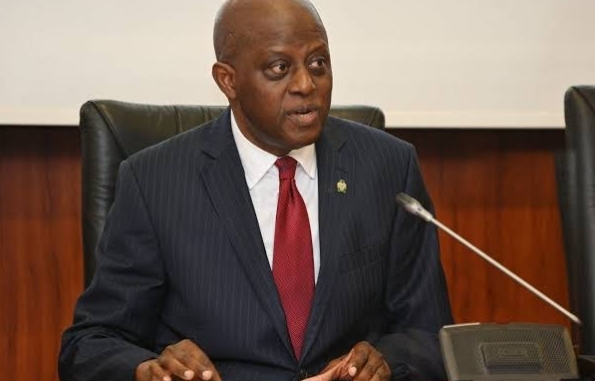FRIDAY April 25, 2025 |
By thenewsdesk.ng
The World Bank has praised the recent monetary policy reforms by Nigeria’s Central Bank (CBN), noting their significant role in stabilising the naira and improving foreign exchange (FX) liquidity.
In its latest regional economic outlook report, Africa’s Pulse, released on Thursday, the financial institution outlined how the CBN’s policy adjustments are making positive strides in Nigeria’s economic landscape.
According to the World Bank, the naira, along with the South Sudanese pound and the Ethiopian birr, was among the weakest-performing currencies in the last year.
However, the report highlighted that recent CBN policies have brought about notable improvements in currency stability.
These reforms focus on creating a unified, market-driven exchange rate system to enhance the naira’s competitiveness.
As a result, the World Bank acknowledged a reduction in exchange rate volatility and an improvement in FX liquidity, contributing to a more stable naira.
Beyond currency matters, the World Bank also pointed to Nigeria’s economic performance, which surpassed expectations in the final quarter of 2024.
The country’s real GDP growth accelerated from 3.1% year-on-year in Q3 2024 to 4.6% in Q4.
This growth was primarily driven by the expansion of the non-oil sector, particularly services, which saw a robust 5.4% year-on-year growth.
The report highlighted that the service sector’s growth was largely propelled by the financial, telecommunications, and information sectors, while the oil sector grew by 5.5% in 2024.
Increased oil production, which rose from 1.47 million barrels per day in 2023 to 1.55 million barrels per day in 2024, also supported the oil sector’s growth.
Looking ahead, the World Bank forecast a significant increase in Nigeria’s current account surplus.
This positive outlook is attributed to the naira’s depreciation, a reduction in imports, and an uptick in remittances from Nigerian workers abroad.
The current account surplus is expected to rise from 9.2% of GDP in 2024 to 9.4% in 2026.
In a related development, global ratings agency Fitch recently upgraded Nigeria’s credit rating to ‘B’, citing improved policy credibility and a lower risk of short-term economic instability.
Fitch also highlighted that Nigeria’s macroeconomic policies are expected to continue driving down inflation and fostering stability in the FX market.
As Nigeria navigates these economic transformations, the World Bank’s report underscores the importance of consistent policy reforms and robust economic strategies in ensuring long-term growth and stability for the nation.
Related posts
Categories
- Advertisements (1)
- Agriculture (45)
- Breaking News (26)
- Business (598)
- Crime (989)
- Education (319)
- Entertainment (128)
- Features (13)
- For The Records (43)
- Foreign News (1,189)
- Health (219)
- Home News (332)
- Interview (9)
- Judiciary (349)
- Lifestyle (140)
- Local News (111)
- National News (1,448)
- Opinion (26)
- Politics (1,012)
- Religion (157)
- Science and Technology (125)
- Security (680)
- Sports (880)
- States' News (819)
- Transportation (330)
- Uncategorized (10)

